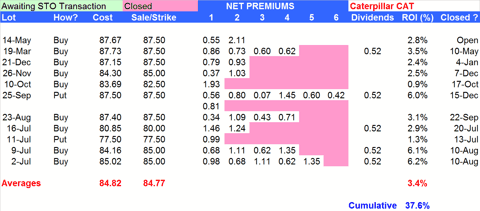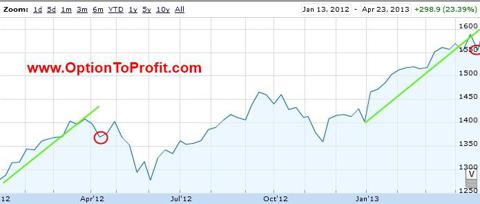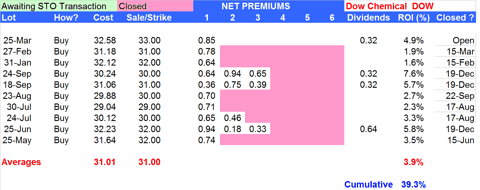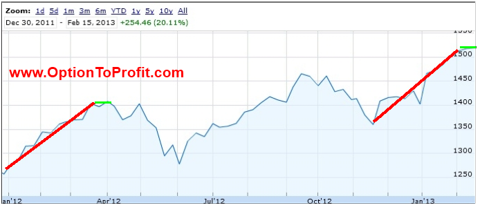 A long time ago there was a reasonably popular song by a group that itself was reasonably popular at a time when Disco was dying, Punk Rock had out-grown its shock factor and Heavy Metal and long hair bands were taking root.
A long time ago there was a reasonably popular song by a group that itself was reasonably popular at a time when Disco was dying, Punk Rock had out-grown its shock factor and Heavy Metal and long hair bands were taking root.
Csókold meg a seggem
 A long time ago there was a reasonably popular song by a group that itself was reasonably popular at a time when Disco was dying, Punk Rock had out-grown its shock factor and Heavy Metal and long hair bands were taking root.
A long time ago there was a reasonably popular song by a group that itself was reasonably popular at a time when Disco was dying, Punk Rock had out-grown its shock factor and Heavy Metal and long hair bands were taking root. (A version of this article appeared in TheStreet.com).
(A version of this article appeared in TheStreet.com). As an example, I’m going to look at Petrobras (PBR) shares that I bought on January 7, 2013 at $20.05 and currently trading at $13.48. An advanced degree is mathematics is unnecessary to recognize that represents more than a 10% decline and would violate investing rules sometimes attributed to famed financier Bernard Baruch.
As an example, I’m going to look at Petrobras (PBR) shares that I bought on January 7, 2013 at $20.05 and currently trading at $13.48. An advanced degree is mathematics is unnecessary to recognize that represents more than a 10% decline and would violate investing rules sometimes attributed to famed financier Bernard Baruch.
Shades of 1999.
I’m not certain that I understand the chorus of those claiming that our current market reminds them of 1999.
Mind you, I’m as cautious, maybe much more so than the next guy and have been awaiting some kind of a correction for more than 2 months now, but I just don’t see the resemblance.
Much has also been made of the fact that the S&P 500 is now some 12% above its 200 Day Moving Average, which in the past has been an untenable position, other than back when sock puppets were ruling the markets. Back then that metric was breached for years.
Back in 1999 and the years preceding it, the catalyst was known as the “dot com boom” or “dot com bubble” or the “dot com bust,” depending on what point you entered. The catalyst was clear, perhaps best exemplified by the ubiquitous sock puppet and the short lived PSINet Stadium, back then home to the world Champion Baltimore Ravens. The Ravens survived, perhaps even thrived since then, while PSINet was a casualty of the excesses of the era. When it was all said and done you could stuff PSINet’s assets into a sock.
During the height of that era the catalyst was thought to be in endless supply. But in the current market, what is the catalyst? Most would agree that if anything could be identified it would likely be the Federal Reserve’s policy of Quantitative Easing.
But as last week’s rumor of its upcoming end and then an article suggesting that the Federal Reserve already has an exit plan, the catalyst is clearly not thought to be unending. Unless the economy is much worse than we all believe it to be the fuel will be depleted sooner rather than later.
Now if you’re really trying to find a year comparable to this one, look no further than 1995, when the market ended the year 34% higher and never even had anything more than a 2% correction.
If llke me, and you’re selling covered options; let’s hope not.
For me, this Friday marked the end of the May 2013 option cycle. As I had been cautious since the end of February and transitioned into more monthly option contract sales, I am faced with a large number of assignments. Considering that the market has essentially been following a straight line higher having so many assignments isn’t the best of all worlds.
While I now find myself with lots of available cash the prevailing feeling that I have is that there is a need to protect those assets more than before in anticipation of some kind of correction, or at least an opportunity to discover some temporary bargains.
This week I have more than the usual number of potential new positions, however, I’m unlikely to commit wholeheartedly to their purchase, as I would like to maintain about a 40% cash position by the end of next week. I’m also more likely to continue looking at monthly option sales rather than the weekly contracts.
As usual, the week’s potential stock selections are classified as being in Traditional, Double Dip Dividend, Momentum or the “PEE” category (see details). Additionally, although the height of earnings season has passed there may still be some more opportunity to sell well out of the money puts prior to earnings on some reasonably high profile names..
There’s no doubt that the tone for the week was changed by the down to earth utterances of David Tepper, founder of the Appaloosa Hedge Fund. He has a long term enviable record and when he speaks, which isn’t often, people do take notice. Apparently markets do, as well.
However, among the things that he mentioned was that he had lightened up on his position in Apple (AAPL). It didn’t take long for others to chime in and Apple shares fell substantially even when the market was going higher. Although I was waiting for Apple to get back into the $410-420 range, the rebound in share price following news of reduced positions by high profile investors is a good sign and I believe warrants consideration toward the purchase of new shares.
I recently purchased shares of Sunoco Logistics (SXL) in order to capture its generous and reliable dividend. My shares were assigned this past Friday, but I’m willing to repurchase, even at a higher price and even with a monthly option contract to tie me down. In the oil services business it is a lesser known entity and trades with low volume, however, it will share in sector strength, just in a much more low profile manner.
Pfizer (PFE) is another stock that was recently purchased in order to capture it’s dividend and premium and was also assigned this past week. However, it is among the “defensive” stocks that I think would fare relatively well regardless of near term market direction. Like many others that do offer weekly options, my inclination is to consider the selling monthly contracts for the time being.
While healthcare has certainly already had its time in the sun in 2013 and Bristol Myers Squibb (BMY) has had its share of that glory, after some recent tumult in its price and most recently its next day reversal of a strong move the previous day, I find the option premium appealing. However, as opposed to Pfizer, which I’m more inclined to consider a monthly option, Bristol Myers has too much downside potential for me to want to commit for longer periods.
Although I already own shares of Petrobras (PBR) and am not a big fan of adding additional shares after such a strong climb hig
her off of its rapidly achieved lows, Petrobras recently and quietly had quite an achievement. WHile everyone was talking about Apple’s $17 Billion bond offering that had about $50 Billion in bids, Petrobras just closed an $11 Billion offering with more than $40 Billion in bids.
Caterpillar (CAT), which I also currently own, is a perennial member of my portfolio. To a very large degree it has been recently held hostage to rumors of contraction and slowing in the Chinese economy. It has, however, shown great resiliency at the current price level and has been an excellent vehicle upon which to sell call options.
 As shown in the table above, I’ve owned shares of Caterpillar on 11 separate occasions in less than a year. While the price has barely moved in that period, the net result of the in and out trades, as a result of share assignments has been a gain in excess of 35%.
As shown in the table above, I’ve owned shares of Caterpillar on 11 separate occasions in less than a year. While the price has barely moved in that period, the net result of the in and out trades, as a result of share assignments has been a gain in excess of 35%.
The more ambiguity and equivocation there is in understanding the direction of the Chinese economy the better it has been to own Caterpillar as it just bounces around in a fairly well defined price range, making it an ideal situation for covered call strategies.
Continuing the theme of shares that I currently own, but am considering adding more shares, is British Petroleum (BP). With much of its Deepwater Horizon liabilities either behind it or well defined, shares appear to have a floor. However, in the past year, that has already been the case, as my experience with British Petroleum ownership has paralleled that of Caterpillar in both the number of separate times owning shares and in return – only better.
Of course, better than either Caterpillar or British Petroleum has been Chesapeake Energy (CHK). I’ve owned it 18 times in a year. It too has had much of its liability removed as Aubrey McClendon has left the scene and it is already well known that Chesapeake will be selling assets under a degree of duress. With its turnaround on Thursday and dip below $20, I am ready to add even more shares.
I’ve probably not owned Conoco Phillips (COP) as much as I would have imagined over the past year probably As a result of owning British Petroleum and Chesapeake Energy so often. Shares do go ex-dividend this week which always adds to the appeal, particularly when I’m in a defensive mode.
Salesforce.com (CRM) was a recommendation last week. I did make that purchase and subsequently had shares assigned. This week it reports earnings and as many of the earnings related trades that I prefer, it offers what I believe to be a good option premium even in the event of a large downward move. In this case a 1% return for the week may be achieved if share price doesn’t exceed 8%
Sears Holdings (SHLD) always seems like a ghost town when I enter one of its stores, although perhaps a moment of introspection would indicate that I drive shoppers away. I’m aware of other story lines revolving around Sears and its real estate holdings, but tend not to think in terms of what has been playing out a s a very, very long term potential. Instead, I like Sears as a hopefully quick earnings trade.
In a week that saw beautiful price action from Macys (M), Kohls (KSS) and others, perhaps even Sears can pull out good numbers and even provide some positive guidance. However, what appeals to me is a put sale approximately 8% below Friday’s close that could offer a 4% ROI for the month or shorter.
Another retailer, The Gap (GPS), has certainly been an example of the ability to arise from the ashes and how a brand can be revitalized. Along with it, so too can its share price. The Gap reports earnings this week and has already had an impressive price run. As opposed to most other earnings related trades, I’m not looking for a significant downward move and the market isn’t expecting such a move either. Based on some of the strong retail earnings announced this past week I think The Gap may be an outright purchase, but I would be more likely to look at a weekly option sale and hope for quick assignment of shares.
TIVO (TIVO) is one of those technologies that I’ve never adopted. Maybe that’s because I never leave the house and the television is always on and I rarely see a need to change the station. But here, too, I believe TIVO offers a good short term opportunity even if shares go down as much as 20% following Monday’s earnings release. In the event that shares go appreciably higher, it is the ideal kind of earnings trade, in that coming during the first day of a monthly option contract, it could likely be quickly closed out and the money then used for another investment vehicle.
Om the other hand, Dunkin Brands (DNKN) is definitely one of those technologies that I’ve adopted, especially when having lived in New England. Fast forward 20 years and they are now everywhere in the Mid-Atlantic and spreading across the country as their new offerings also spread waists around the country. Going ex-dividend this coming week and offering a nice monthly option premium, I may bite at more than a jelly donut. However, it is trading at the upper end of its recent price range, like all too many other stocks.
Finally, Carnival (CCL) hasn’t exactly been the recipient of much good news lately. Although it’s up from its recent woes and lows. It does report earnings at the end of the June 2013 option cycle, but it also goes ex-dividend in the first week of the cycle, in addition to a offering a reasonable option premium
Traditional Stocks: Bristol Myers, Caterpillar, Pfizer, Sunoco Logistics
Momentum Stocks: Apple, Chesapeake Energy, Petrobras
Double Dip Dividend: Carnival Line (ex-div 5/22), Conoco Phillips (ex-div 5/22), Dunkin Brands (ex-div 5/23)
Premiums Enhanced by Earnings: Salesforce.com (5/23 PM), Sears Holdings (5/23 AM), The Gap (5/23 PM), TIVO (5/20 PM)
Remember, these are just guidelines for the coming week. Some of the above selections may be sent to Option to Profit subscribers as actionable Trading Alerts, most often coupling a share purchase with call option sales or the sale of covered put contracts. Alerts are sent in adjustment to and consideration of market movements, in an attempt to create a healthy income stream for the week with reduction of trading risk.
 Schadenfreude suits me just fine.
Schadenfreude suits me just fine.
Is it really “schadefreude” when you don’t really know or see the people upon whom misfortune has been heaped?
For those that aren’t familiar with the word, “schadenfreude” is the strangely good feeling that some people derive when others fail or are subject to misfortune.
In Talmudic teaching the highest form of charity is when neither the donor nor the recipient are aware of one another’s identity. Complete ignorance raises the act of charity to a higher level.
Of course, we will never be able to answer the question of whether there is really a sound produced when a tree falls in the forest and there is no one present to lay witness. A single degree of separation can completely call into question that which seems patently obvious. Ignorance of an event can be is as if it doesn’t even exist.
Being a covered option seller, I do take some perverse pleasure and satisfaction when the market goes lower, even though I know that the vast majority of investors, especially the individual investor, fares well only when the markets are moving higher.
When I sell longer term call options, such as the monthly variety, I just love seeing the share price exceed my strike level early during the term of the contract, only to watch those gains dissipate as the term nears its end, especially if the end returns right to the strike price.
Somewhere, I just know that someone is asking themselves why they didn’t take their profits when they had the chance.
That’s pretty bad, right? But I never see that person. I’m not really certain that they even exist, except for the fact that I was once that person. To a large degree I believe that I was deeply ignorant back in those days with regard to the discipline of securing profits. These days I’ve simply added ignorance to the fortunes of those on the other end of trades to the list of things unknowable. Additionally, not knowing who they are is the highest form of ignorance.
As this past week was one that I immensely enjoyed and briefly put away my short term pessimism in order to trade at levels that reflect a more bullish tone, I’m now on the fence as to whether the bullish feeling can be sustained given what the past may be revealing.
After hitting market peaks 2 weeks ago and then alternatively going from the worst week of 2013 to one of the best weeks of 2013, I continue to believe that we are replicating the first 5 months of 2012.
 So while I’m very happy with the higher tract that stocks took this past week, I’m especially happy to see assignments take place and have the cash settle in my account, to hold or to invest, as the market reveals itself.
So while I’m very happy with the higher tract that stocks took this past week, I’m especially happy to see assignments take place and have the cash settle in my account, to hold or to invest, as the market reveals itself.
Although I would much rather be fully invested, I really do want to see give backs of many gains at this point. Having a sizeable portion in cash and evolving from the use of weekly contracts to monthly ones, or even the occasional June 2013 cycle, makes it easy to make that wish.
If history is a guide, the last correction we experienced lasted just one month and then was completely recovered 2 months after it ended.
I can live with that, at least while cash is on the sidelines. If it happens, and assuming that it’s within tolerable levels, such as 10%, I’ll be reasonably happy, but not in a schadenfreude kind of way, although that kind of admission would certainly get me much more attention. Everyone notices the misanthropic guy and wishing that stock prices retreat may be the highest form of misanthrope, especially if it disproportionately impacts widows and orphans.
As usual, the week’s potential stock selections are classified as being in Traditional, Double Dip Dividend, Momentum or the “PEE” category (see details). Additionally, as in previous weeks there is a greater emphasis on stocks that offer monthly contracts only, eschewing the usual preference for the relatively higher ROI of weekly options for the guarantee of premiums for a longer period in order to ride out any turbulence. Additionally, as with the previous week, we are at the height of earnings season and thus far there have been some surprises, perhaps offering more opportunity to sell well out of the money puts prior to earnings.
I really can’t recall the last time I owned shares of ExxonMobil (XOM). Although it is one of the shares that I consistently follow, it rarely has piqued my short term interest. That may be changing a bit as I look at its upcoming and increased dividend. At a time that I’m expecting to be on the precipice of a market decline that is technically driven, rather than fundamentally, I would be more inclined to limit new investments to more defensive stocks that are likely to outperform a falling market during a period of economic stability or growth.
Although Apple (AAPL) was a potential earnings related trade last week, I ultimately waited for earnings and instead purchased shares the next day. Those were assigned, but if shares open the week near the $410 level, I am interested in establishing a new position and using an out of the money monthly contract in order to have an opportunity to also secure the newly increased dividend. I believe that Apple will out-perform the market in the near term and will offer trading opportunities in addition to appealing option premiums.
With last week’s selection Cisco (CSCO) among those assigned, Oracle (ORCL) also one of last week’s potential picks went unrequited. It also under-performed Cisco as some of the networking companies were depressed following Broadcom’s (BRCM) earnings. I’ll be looking to Oracle as a potential purchase this week as well, as the technology sector may be showing some signs of catching up to the overall market with Microsoft (MSFT) and Intel (INTC) showing strength.
As news related to the Chinese economy seems to wag our own stock market, the heavy machinery titans have been slammed back and forth as what is called “news” is so often re-interpreted or presented in different lights that create an alternation between good economic news and bad economic news on a near daily basis. Very often the sector moves in unison even when the exposure to China is limited. While Joy Global (JOY) has significant exposure, PACCAR (PCAR)certainly has less so. Both have recovered a bit this past week as have Caterpillar (CAT) and Deere (DE). ALl, however, continue to trail the S&P 500 in 2013.
Petrobras (PBR) suspended its regular dividend payment in 2012. I’m somewhat embarrassed to still be holding shares priced in the $19-20 range, purchased just before a slew of bad news. Having held onto shares even as they sank as much as almost 25%, it has been clawing its way back. Among the positive signs are the recent announcement of two special dividends. With the hope for some stability in its share price after bad news regarding pricing and production issues have now been digested, it may be time to restart accumulating shares.
Last week playing earnings related trades was a very timely strategy. I don’t know if the pleasant surprises will continue, but I think there may again be some very reasonable risk-reward propositions available, as long as you don’t mind the possibility of owning shares after it’s all said and done.
Among those reporting is Facebook (FB), which despite having received an IPO allocation and currently owning shares at various price points, has become one of my favorite stocks. The existence of extended weekly options opens up many more opportunities to generate option premiums and mitigate the potential impact of sudden adverse moves in share price. At Friday’s closing price, a weekly put sale at a strike price 12.5% below the close could return a 0.7% ROI. For those more adventurous, a strike price only 9% lower could yield a 1.4% return.
Pfizer (PFE) reports earnings this week and fits into the profile that appeals to me the most when considering an earnings related trade. This past week it sustained a large price drop, which is usually the signal that clears me to sell puts on shares. However, in this case, I more likely to consider an outright purchase on shares, not only for some capital appreciation and option premium income, but also in order to capture the May 8, 2013 dividend payment.
Humana (HUM) has been on a true rollercoaster ride. As often happens with health care stocks the various interpretations of how changing legislation or pricing structure may impact share price sends the shares in irrational and alternating directions. With earnings approaching and shares down almost 10% from its 2 week ago high, it represents a potentially acceptable risk-reward offer. If it falls less than another7% the ROI is approximately 1%. That, however, is for the time remaining on a monthly contract, which makes it a little less appealing to me, but still under consideration.
Finally, I’m not certain how much longer the world needs an independent Open Table (OPEN) but it has the kind of pricing volatility at the time of earnings release to make it worth considering a purchase of shares and the sale of deep in the money calls or simply a sale of deep out of the money puts.
Traditional Stocks: ExxonMobil, Oracle, Paccar, Pfizer
Momentum Stocks: Apple, Joy Global
Double Dip Dividend: Petrobras (ex-div 4/30)
Premiums Enhanced by Earnings: Facebook (5/1 PM), Humana (5/1 AM), Open Table (5/2 PM)
Remember, these are just guidelines for the coming week. Some of the above selections may be sent to Option to Profit subscribers as actionable Trading Alerts, most often coupling a share purchase with call option sales or the sale of covered put contracts. Alerts are sent in adjustment to and consideration of market movements, in an attempt to create a healthy income stream for the week with reduction of trading risk.
 It’s said that George Eastman, founder of Eastman Kodak (EKDKQ), was quite methodical as he approached the end of his life and was prepared to put his escape plan into action.
It’s said that George Eastman, founder of Eastman Kodak (EKDKQ), was quite methodical as he approached the end of his life and was prepared to put his escape plan into action.
“My work here is done” may be a very logical way to approach any kind of transition, although it doesn’t have to be taken to the extreme that Eastman felt was appropriate under his circumstances. Be prepared, but don’t be crazy.
I’ve been transitioning a portfolio for almost a month in anticipation of the market taking a break and perhaps giving back some of its gains; maybe even a lot of its gains.
Doing so has made me much less fun to be around, but circumstances do change and being prepared for plausible scenarios means having exit strategies and surviving to see them do as planned until it’s time to exit the exit strategy. Once my work is done I can’t wait to get back to work.
I for one was glad to see the first quarter of 2013 come to an end. Fortunately, as a covered option seller, my remaining life span may not be sufficient to see another opening yearly quarter such as this past one, as the last such period was in 1987.
You may or may not remember how that year ended, but let’s just say that a single day 500 point drop back then was a lot more meaningful than it would be today.
I wasn’t prepared back then, in fact, that was the last time I used a margin account. I may end up being wrong this time around, but in watching markets for a number of years, both as a casual observer and as an active participant it’s reasonably clear that the good times don’t just keep rolling.
Selling covered calls is a great strategy when applied methodically, but it does meet its match in markets that just do nothing other than going higher. Hopefully April will usher in some greater variety in outcomes, as the past few weeks, despite having established records in both the Dow Jones and S&P 500 have been showing some signs of tentative behavior.
Part of being a less fun person has meant initiating fewer new positions each week. The first step to creating an environment that wouldn’t entice me to spend money on new positions was to cut off the funding just like you might with any addict. Luckily, most stock traders won’t resort to petty crime and pawning the belongings of loved ones to feed the habit, although that margin account can be very appealing and the answer to an easy fix.
I cut off my flow of funds by moving from weekly to extended weekly or monthly options. Longer contracts means less weekly contracts available to be assigned and less opportunity for new weekly cash to be available to “feed the beast.”.
Unfortunately, I also curtailed my cash flow by some unseemly timing in the purchase of new positions this past quarter, such as Petrobras (PBR) and Cliffs Natural Resources (CLF) that are sitting awaiting opportunities to have call contracts written against them.
The next part of the transition was focusing on reliable dividend paying stocks. The kind your grandfather would feel comfortable owning. Last week, all new positions went ex-dividend last week or this coming week. They’re not very exciting to own, but dividends, especially when their ensuing share price reduction is partially offset by option premiums are especially welcome.
Keeping more cash in reserve, moving away from “Momentum” positions, longer contracts and seeking near term dividends is the exit strategy and my transition is nearly complete.
Now comes the waiting and the period of self-doubt, which includes wondering when it’s time to abandon a thesis. In the meantime, increasing cash reserves doesn’t mean a total prohibition against finding potential new opportunities. After all, being prepared doesn’t have to take you to extremes. Once you’ve reached a crazy state of preparedness it’s hard to turn around to see the light.
As usual, the week’s potential stock selections are classified as being in Traditional, Double Dip Dividend or Momentum categories, with no selections in the “PEE” category, as earnings season begins anew on April 8, 2013 (see details). Additionally, as in previous weeks there is a greater emphasis on stocks that offer monthly contracts only, eschewing the usual preference for the relatively higher ROI of weekly options for the guarantee of premiums for a longer period in order to ride out any turbulence.
Some of this week’s selections are stocks that I already own but may consider adding to existing positions. One such stock is Deere (DE) which left me somewhat exasperated this past Thursday, the final day of a holiday shortened trading week.
At almost precisely noon shares of Deere dropped by about $1.40 in about 8 minutes, taking it from the realm of stocks poised for assignment. The plunge happened while the market was stable and most other heavy machinery and equipment makers were actually going higher. There was no news to account for the sudden and sustained drop. Neither in real time nor hours after.
Caterpillar (CAT) is one of the stocks that has an ignominious reputation during this record setting quarter. It was among the worst performers of the quarter and was routinely tagged as a laggard on those days that the broad market performed well. I recently purchased shares having waited all quarter for them
to reach the price point that was very kind to me in 2012. It accompanied Deere for a small portion of the former’s inexplicable retreat but recovered sufficiently to avoid being tagged yet again.
Bristol Myers Squibb (BMY) and Medtronic (MDT) fit into two ongoing themes. Looking for near term dividend paying shares and belonging to the broadly defined healthcare sector. While healthcare has been the leading sector for the trailing year, I think there are still short term opportunities, even with a specter of a declining market. While both Bristol Myers and Medtronic have had significant advances lately, the combination of dividend and premium continue to make it appealing.
MetLife (MET), also a recent holding, fits into my broad definition of “healthcare” if you stretch that definition to an extreme. Part of my positive outlook for its shares is related to what I believe will be growth in its home insurance business. Of course, I rarely think in terms of fundamentals and certainly don’t have a long term perspective on its shares, but it is well positioned to maintain price stability even in a stock market of reduced stability.
Wells Fargo (WFC) and JP Morgan (JPM) are two very different banks. JP Morgan goes ex-dividend this week and has been beleaguered with domestic attacks from elected officials and international attacks as Cyprus may or may not add risk to global banks, such as JP Morgan.
On the other hand, Wells Fargo is as pure of a domestic play as you can find at a size that still makes it “too big to fail.” With news of improving real estate sales all over the country the Wells Fargo money machine is poised to re-create the glory days that so abruptly ended 5 years ago.
I’ve been looking for an excuse to purchase Lowes (LOW) for the past few weeks and have watched its price show some mild erosion during that time
 Dow Chemical (DOW) has been one of my favorite stocks for a long time. I purchased additional shares last week to capture its dividend and after looking at its performance over the past 10 months feel guilty thinking that it’s a “boring” stock.
Dow Chemical (DOW) has been one of my favorite stocks for a long time. I purchased additional shares last week to capture its dividend and after looking at its performance over the past 10 months feel guilty thinking that it’s a “boring” stock.
In fact, it’s been absolutely the poster child for what makes a covered call strategy a successful one. While its stock price has virtually remained unchanged since May 2012, the active cycle of buying shares, selling calls, assignment, buy shares, etc.. has resulted in a nearly 40% ROI.
Finally, Western Refining (WNR) is a company whose shares I briefly owned recently at a much lower price. It was one that got away during the uni-directional market of the first quarter. Its price has come down a bit and I think may now be at its “new normal” making it perhaps an antidote to Petrobras in a sector that has some catching up to do.
Traditional Stocks: Caterpillar, Deere, Dow Chemical, JP Morgan, Lowes, MetLife, Wells Fargo
Momentum Stocks: Western Refining
Double Dip Dividend: Bristol Myers (ex-div 4/3), JP Morgan (ex-div 4/3), Medtronic (ex-div 4/3)
Premiums Enhanced by Earnings: none
Remember, these are just guidelines for the coming week. Some of the above selections may be sent to Option to Profit subscribers as actionable Trading Alerts, most often coupling a share purchase with call option sales or the sale of covered put contracts. Alerts are sent in adjustment to and consideration of market movements, in an attempt to create a healthy income stream for the week with reduction of trading risk.
Some of the stocks mentioned in this article may be viewed for their past performance utilizing the Option to Profit strategy.
 I often say that I neither believe nor follow fundamental nor technical analyses.
I often say that I neither believe nor follow fundamental nor technical analyses.
Maybe that’s because I’m incapable of understanding or learning the nuances of either. However, despite saying such, like so many things in life, the truth usually lies somewhere in-between.
I do look at charts, although I’m not entirely convinced that I know what I’m looking for or looking at when I stare at the graphic representation of what we observe in the market. On some primitive level I must be doing some kind of technical analysis because I do look for patterns, such as that mentioned about 9 months ago in how Apple (AAPL) was resembling the Google (GOOG) of 2008.
As someone who has been consistently selling options for more than 5 years, I can look at specific periods of time when those who criticize that technique would have been able to revel in their tremendous insight and understanding of price movements, while I would have been wallowing in introspection.
Luckily, that introspection never seems to last for very long.
One such period was from January 1, 2012 to mid-March 2012. One real characterization of that period, besides the seemingly higher close each and every day was the manner in which it happened. Coming immediately after the close of trading in 2011, a year in which triple digit moves in either direction were the norm, that initial period in 2012 was quite different. Those moves were rare. Instead, it was the same slow melt-up that we’ve witnessed thus far in 2013.
I’ll add the first 6 weeks of 2013 as a period that I haven’t been fully enamored of having sold options, although to be fully analytical, I’d have to admit that stock selection plays a role, as well. On paper, the adverse impact of Petrobras (PBR) and Cliffs Natural Resources (CLF), have to be given their due credit.
But looking back to 2012, it all just suddenly changed and made me feel much better about the strategy of selling options. It all started with those triple digit moves. Just as quickly, introspection gave way to a sense of high self-esteem.
As 2013 has been thus far following the same pattern, I’m beginning to see the light at the end of the tunnel.
 Again, I’ll certainly admit to a very simplistic use of charts, but just as the charts of Apple and Google at different periods in their corporate lives looked remarkably similar and portended a future path for Apple, I am struck by the similarity in the slopes of the S&P 500 (SPY) for the two periods mentioned earlier.
Again, I’ll certainly admit to a very simplistic use of charts, but just as the charts of Apple and Google at different periods in their corporate lives looked remarkably similar and portended a future path for Apple, I am struck by the similarity in the slopes of the S&P 500 (SPY) for the two periods mentioned earlier.
Qualitatively, I could tell anyone how similar those periods were, without looking at any chart, owing to my trading results. However, the parallel slopes tell a more compelling and quantitative story. Beyond that, the time periods are identical. In the case of 2012, the ascendant period was followed by a brief two week flat period, which was followed by a quick 2% market drop. That drop was just as quickly erased, restoring investor confidence long enough to go through a 1 month and 8% decline.
On this President’s Day, coincidentally we are just concluding a two week period of calm and flat performance, with the S&P 500 having moved 2 points in that period.
There’s certainly no rule that I know of that insists that events repeat themselves. In this case, looking back at my 2012 results, I certainly hope that they do, as it is always preferable for the covered option seller to be doing so in a flat or down market.
Of course, a rational mind will ask what the stimulus might be for a market reversal or any large move regardless of direction. Whereas individual stocks may not require a publicly known stimulus to have a large and sudden move, the market itself needs some overt catalyst. Back in 2012, perhaps it was news of a double dip in the Spanish economy or Greek elections that turned out austerity. Who really knows?
On the horizon, the only known entity is the “sequester.” However, it’s really anyone’s guess where its current deadline for resolution may take us. The recent “Fiscal Cliff” was rationalized by many as being the impetus for the gains of 2013, but it’s not clear to me what effect the sequester may have, regardless of political agreement, or not. Any reduction in spending would be a positive and I believe that the market, which is still rumored to discount events six months into the future, is expecting some kind of resolution.
With less than two weeks to go for the clock to stop ticking, it’s hard to imagine the market being propelled forward on any agreement. Of course, it’s certainly easy to see how another delay or “kick of the can down the road” could be unsettling, especially to credit markets. Standard and Poors may have their own headaches right now with issuance of past credit ratings, but they still do have a job to do.
While politicians may avoid the risk of being labeled “unpatriotic” for voting in favor of defense cuts, they free themselves of that charge if no agreement is reached by March 1,2013, which is just in time for a repeat of 2012.
If I were very concrete and believed that we must stick not only to the same pattern but to the same time frame, I would paint a scenario that envisions a quick 2 week sell off while some gloom sets in regarding agreement on the sequester. That, of course, would have to be followed by another 2 week period, but this time rebounding as it appears that positive movement is occurring.
That brings us to the deadline and the charting anniversary for a large market drop as either there is agreement or there is no agreement.
Win-win, especially if you’re a covered option selling politician.
 On Wednesday evening, Bloomberg Rewind host, Matt Miller tweeted that he was interviewing Wilbur Ross in a live segment in a few moments and was soliciting questions for one of the century’s greatest investors and serial turnaround artists.
On Wednesday evening, Bloomberg Rewind host, Matt Miller tweeted that he was interviewing Wilbur Ross in a live segment in a few moments and was soliciting questions for one of the century’s greatest investors and serial turnaround artists.
Never really needing a reason to Tweet, I was nonetheless pleased that my question was chosen, but I especially liked the ultimate answer. I simply wanted to know if the cool and calm demeanor that Wilbur Ross always displays when on television was ever belied by emotion that got in the way of a business or management decision.
The answer was, to me, at least, incredibly profound and absolutely reflective of the persona that we get to see when he makes appearances. Ross said that in takeovers things often do not go as planned, but you have to “roll with the punches.” He further went on to point out that emotions conspire to work against you in making decisions and taking actions. He was calm and collected in his response and barely showed any facial grimacing or twitching when the question was being asked.
I, on the other hand was twitching, contorting and breathing rapidly at the mere use of my question. I do the same with every tick up and down of every stock I own.
My initial thought was that was probably among the best pieces of advice that could ever be given, but it was just too bad that human nature so reflexively intervenes.
One of the things that I like about buying stocks and then selling calls is that it takes so much of the emotion out of the equation. It also frees you from being held hostage to each and every dive that shares can take for no rational reason. This week alone we watched Petrobras (PBR) drop nearly 10% as it announced fuel increases that Deutsche Bank (DB) described as a “positive” action and Chesapeake Energy (CHK) surge 10% on news that their founder and CEO, Aubrey McClendon, would be leaving in 3 months. In the case of Chesapeake Energy that surge was dissipated in just a day, although that may have been as irrational as the initial move.
Recently, large adverse moves impacted shares of Tiffany (TIF) and YUM Brands (YUM) as downgrades, stories, rumors, a smattering of data and a myriad of other factors took their turns at poking holes in whatever support existed for share price. Of course, they weren’t alone in the cross hairs of the barrage of often transiently irrelevant “facts.”
But by and large, if you sell covered options you can roll with the punches. Instead of feeling the anguish when your stock takes a hit it’s similar to seeing road-kill. It’s terrible, it’s a tragedy, but for the most part you realize that in the big picture it’s all just a blip. Those options that someone else was kind enough to buy from you protect you from having to suffer through the anguish and gives you a chance to get over the initial emotional reaction so that when it is time to make a decision, such as at the end of the option period, you can do so with a far less clouded mind.
Wouldn’t it be nice to have a little Wilbur Ross inside of all of us? Maybe even better would be to be his sole heir, though.
As everyone seemed to be giddy about the fact that the DJIA briefly crossed 140000 for the first time since 2007, I reminded myself of how short a period of time it remained there and then saw that the slopes of the periods preceding the 2007 and 2013 tops are remarkably similar. If anything, maybe a bit more steep this time around?
Fortunately for me that was the time I learned to start going with the punches and had already started protecting my stocks with calls and then used the premiums generated to purchase more shares during the ensuing drops.
Not that history is ever in a position to repeat itself, but we’ve seen this before.
As always, this week’s potential stock positions are all intended as part of a covered option strategy, whether through the sale of covered calls or puts. The selections fall into the usual categories of Traditional, Momentum, Double Dip Dividends or “PEE” stocks (see details).
As the market found itself celebrating jobs on Friday, one sector that was left behind was retail. Among my favorites this year has been The Gap (GPS). They’re mundan
e, not terribly innovative, but they are ubiquitous and always a safe fashion choice. Although its next support level appears to be 10% lower it does offer an appealing enough option premium to accept that risk of wearing brown shoes with a tuxedo.
Murphy Oil (MUR) just took a large hit after announcing earnings. More and more I question the extreme earnings related reactions. What seems to separate some stocks from one another is the rapidity at which they recover from those reactions. The faster the recovery the easier it is to call it an over-reaction. Otherwise, if I own such shares and they don’t rebound quickly, it’s just a case of them being under-appreciated. In Murphy Oil’s case, I think it was a welcome over-reaction.
Southwestern Energy (SWN) has been lagging behind some of its sector mates thus far in 2013, but that situation is reversed if looking at the one year comparisons. It reports earnings early in the March 2013 option cycle and I believe may be poised to challenge its 52 week high.
I’m somewhat reluctant to consider adding Intel shares (INTC) this week. The only lure is the dividend that comes along with it as it goes ex-dividend on February 5, 2013. My reluctance stems from the fact that if I add shares my Intel position will be too large and it has been a disappointingly under-performing asset in the months I’ve held shares, having waited a long time for something of a rebound. While I don’t expect $24 or $25 any day soon, I’m comfortable with $21, a dividend and some option premiums. At least that would ease some of the paper cuts on my wrists.
Starbucks (SBUX) another favorite is a reluctant choice this week, as well, but only because of its strong gain in Friday’s trading and the fact that its option contracts are spread a bit too far apart. With more and more options being offered at strike prices in $1 and even $0.50 gradations the $2.50 and $5 differences seen with some stocks makes them less appealing, especially if selling options to optimize income production over share gains. What’s really needed is for more people to read these articles and drive up the option trading voliume as they realize what an opportunity exists.
Chesapeake Energy has been in the news quite a bit this year, but for all of the wrong reasons. AS usual, its high profile story this week concerned its founder and CEO, Aubrey McClendon. The market quickly added 10% to share value upon learning that McClendon will be leaving the company in April 2013. It quickly gave that gain up during the course of the rest of this week. This is a position, that if I decide to enter, would likely be done on the basis of selling put options. That has been a common theme as I’ve re-entered Chesapeake Energy positions over the years.
What again distinguishes this week’s target stocks is that there is greater emphasis on risk, specifically earnings related risk, as Friday’s jobs data numbers fueled a strong week ending rally that further added to already high stock prices, making bargains harder to find.
Acme Packet (APKT) was one of the first earnings related situations that I described in an article entitled “Turning Hatred into Profits” that sought to create income from either disappointment or reaffirmation. It’s share price is higher now than it was the last time around, but I think that a 1% or more ROI for the chance that it’s share price may go down 10% or less after earnings is a reasonable risk-reward venture. If it works again, I may even try to understand what it is that Acme Packet does the next time earnings season rolls around.
Baidu (BIDU) has been on my lists for the past 2 months or so and has been purchased several times. Under the best and calmest of circumstances it is a volatile stock and is sometimes a frustrating one to match strike price premiums with anticipated objectives because the price moves so quickly. As it gets ready to report earnings, it too can easily move 10% in either direction, yet still meet my threshold of 1% ROI for the level of risk taken.
When it comes to stocks that are capable of making big moves in either direction on any given day and especially on earnings, there aren’t many that are better at doing so than Green Mountain Coffee Roasters (GMCR). This is certainly a stock that has required “going with punches” over the past few years, but it has been a mainstay of my speculative slice of my portfolio for quite a while. I typically think in terms of 25% moves when it comes to earnings. In this case I’m looking at about a 25 to 1 proposition. A 25% drop for securing a 1% profit for one week. If not, then it’s just back to the usual Green Mountain “grind” and selling calls until shares are assigned.
While Herbalife (HLF) has been having all of the fun and getting all of the attention, poor NuSkin (NUS) has been ignored. But, it too, reports earnings this week. I have no opinion on whether NuSkin or any other company are engaged in questionably ethical business practices, I just see it as a vehicle to throw off option premium with relatively little risk, despite it’s overall risky persona. It
‘s not a stock that I would want to hold for very long, so the availability of only monthly options is of some concern.
Riverbed Technology (RVBD) was one of the most early and most frequent members of my covered call strategy. It always feels strange when I don’t have shares. As it gets ready to report earnings this coming week I’m reminded why it so often makes numerous and sizable movements, especially in response to earnings. It has a bad habit of giving pessimistic guidance, but after a long courtship you learn to accept that failing because even if punished after conference calls it always seems to get right back up.
Finally, Panera Bread (PNRA) reports earnings next week. It too is highly capable of having large earnings related movements. Its CEO has lots of Howard Schultz-like characteristics in that he truly knows the business and every intricate detail regarding his company. Interestingly, it went up almost 4% just 2 trading days before earnings are released. That kind of investor “commitment” before a scheduled event always concerns me, but I’m not yet certain just how much it scares me.
Traditional Stocks: Murphy Oil, The Gap, Southwestern Energy
Momentum Stocks: Chesapeake Energy
Double Dip Dividend: Intel (ex-div 2/5), Starbucks (ex-div 2/5)
Premiums Enhanced by Earnings: Acme Packet (2/4 PM), Baidu (2/4 PM), Panera Bread (2/5 PM), Green Mountain Coffee Roasters (2/6 PM), NuSkin (2/6 AM), Riverbed Technology (2/7 PM)
Remember, these are just guidelines for the coming week. Some of the above selections may be sent to Option to Profit subscribers as actionable Trading Alerts, most often coupling a share purchase with call option sales. Alerts are sent in adjustment to and consideration of market movements, in an attempt to create a healthy income stream for the week with reduction of trading risk.
Some of the stocks mentioned in this article may be viewed for their past performance utilizing the Option to Profit strategy